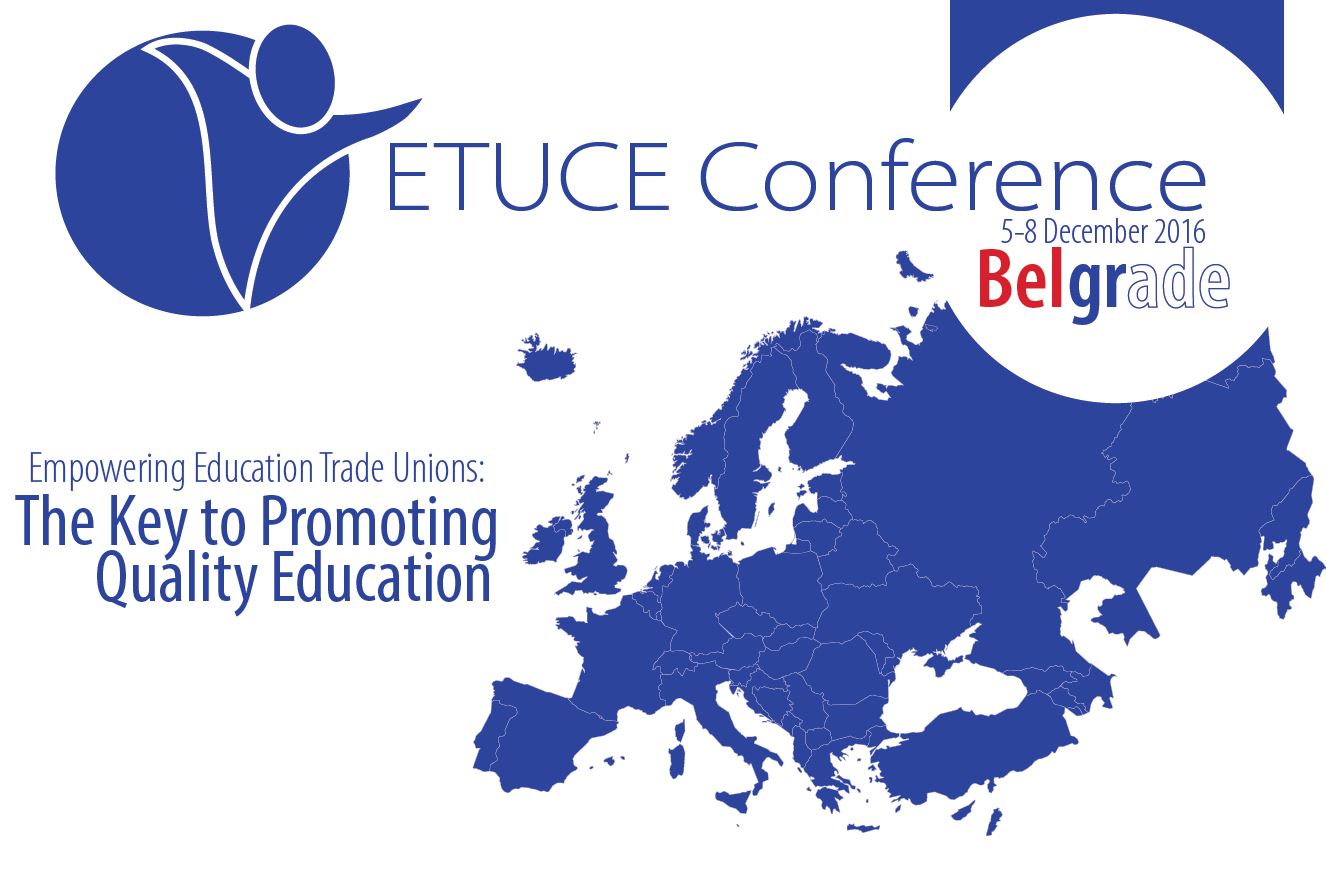Towards the ETUCE Regional Conference: Effective social dialogue for quality education
Published:
On 6-8 December 2016, ETUCE, the European Region of Education International (EI), is going to open the doors of its Regional Conference, kicking off important discussions to address, among others, major challenges that the education sector faces for effective social dialogue both at national and at European level. With the promise of empowering education trade unions to promote quality education, the Conference is to set forth concrete actions and proposals to improve social dialogue and collective bargaining at European, national, regional and local level at times of increasing pressure on social dialogue structures, social partners’ autonomy and trends towards unilateral decision-making by governments.
Across Europe, the education social dialogue situation is facing a variety of challenges, due to internal and external factors. More immediate economic concerns have caused social dialogue to slip down on the policy agenda. The lack of effective social dialogue is reflected in the fact that decisions affecting teachers and the school community are taken outside formal consultations with social partners. In many countries, the scope of bargaining has narrowed at the very time that it should be expanding to deal with the many new challenges to the education community. The pressure on social dialogue is even more challenging at a time when a drift towards a ‘business model’ or commodification of education is evident. Especially in private education institutions, education trade unions are confronted with increasing denial and/or obstruction of trade union rights, or a limited involvement of trade unions in negotiating civil servants’ rights and working conditions.
The ETUCE Regional Conference is to debate the correlation between the effectiveness of national social dialogue and effectiveness of the European Social Dialogue, how to broaden the scope of subjects covered by collective bargaining to include education employees working in private education institutions and how education trade unions could strengthen their capacity building through a renewed and innovative strategy on organising education workers and employees. According to Martin Rømer, ETUCE European Director: ‘the role of education trade unions to advance teachers’ status, job security, salaries and working conditions, professional development and autonomy through social dialogue and collective bargaining not only affects the living and working conditions of the employees in the sector, it also contributes to ensuring that all children, especially from the most disadvantaged background, have access to quality education, thus hindering the reproduction of inequalities and contributing to social justice”.